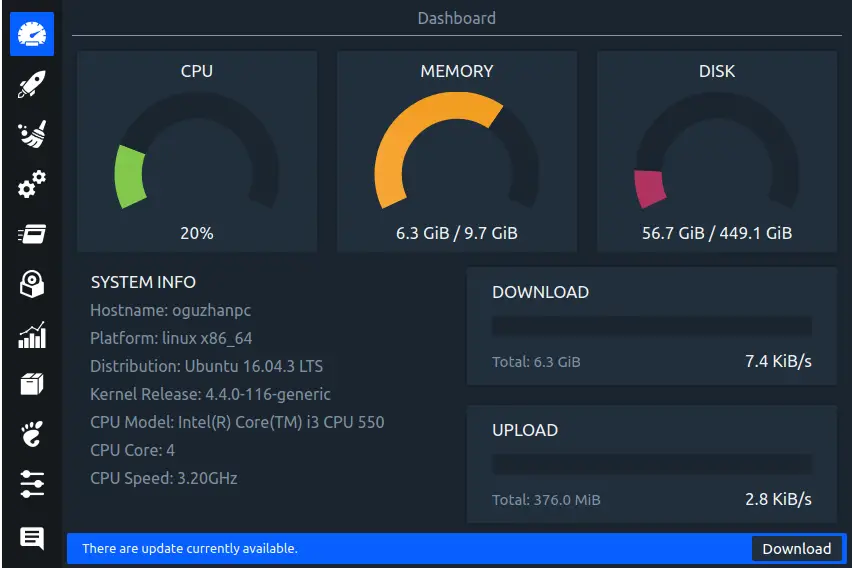Insight: List Of System Cleaning Tools For Ubuntu
Let’s have a quick look into the list of system cleaning tools for Ubuntu and Ubuntu based operating systems in 2021.
List Of System Cleaning Tools For Ubuntu
1. Stacer

Stacer is one of the popular system optimizing tool for Ubuntu. You can optimise your Ubuntu by managing your resources, process and removing not so important files from your Ubuntu.
Run the following command to install Stacer on Ubuntu:
sudo add-apt-repository ppa:oguzhaninan/stacer sudo apt update sudo apt install stacer
2. BleachBit
Belachbit is another popular system optimizer and cleaning tool for Linux. BleachBit is open source that can free cache, delete cookies, clear Internet history, shred temporary files, delete logs and junk. It wipes clean thousands of applications including Firefox, Adobe Flash, Google Chrome, Opera, and more.
Run the following command to install BleachBit in Ubuntu 20.04 LTS:
sudo apt install bleachbit
3. Sweeper
Sweeper is a default system optimizer for KDE based system. It can remove cookies and clean out caches
Run the following command to install Sweeper in Ubuntu based operating systems:
For Ubuntu and Debian based operating system sudo apt install sweeper For CentOS and RHEL yum install sweeper For Fedora dnf install sweeper
4. FSlint
sudo apt-get install fslint
5. GCleaner
It is a system cleaning tools for the Linux based operating systems. It is an open source system cleaning tool that you can use it in your Ubuntu based operating systems. Currently there is two versions of GCleaner alive, one written in Vala and the other in Python.
sudo add-apt-repository ppa:libredeb/gcleaner sudo apt update sudo apt install gcleaner
Now, let’s look on to the manual ways of cleaning space of Ubuntu.
One of the way is by cleaning your APT cache regularly to make some space in your Ubuntu operating system. Run the following command to see the size of your APT cache at first.
du -sh /var/cache/apt/archives
and now you can clean it by running the following command:
sudo apt-get clean
Another way of making some space is by removing old kernel from your system but you should be cautious while running this method as this might crash your system. You need to properly check the kernel version before removing them. You can remove old kernel with the following command:
sudo apt-get autoremove --purge


